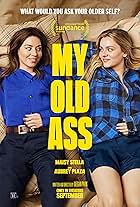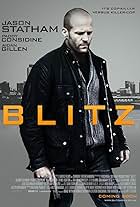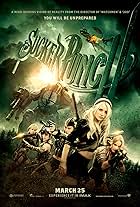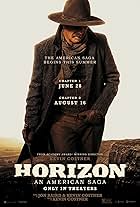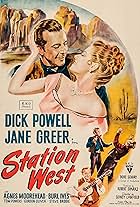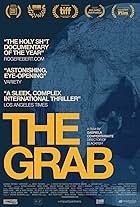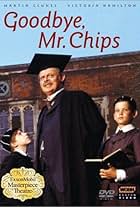
fung0
Joined Aug 2006
Welcome to the new profile
We're still working on updating some profile features. To see the badges, ratings breakdowns, and polls for this profile, please go to the previous version.
Ratings524
fung0's rating
Reviews247
fung0's rating
Like the great Jack Lemmon, Michael Keaton has always had an affinity for films that are not easily categorized as either drama or comedy. Goodrich is certainly more drama than comedy, but a seasoning of ironic humor gives it a valuable extra dimension.
Goodrich, the character, could be a stereotype: he's a guy who's spent too many years in love with his career (as owner of a chic art gallery), and not enough years showing love for his (2) wives or (3) children. The story focuses particularly on his 30-something daughter from his first marriage, and his two nine-year-olds from the more recent one. As the movie opens, Goodrich faces a confusing situation, and the challenges rapidly get tougher as the story progresses.
In strong contrast to many feel-good films having a roughly similar storyline, Goodrich doesn't offer easy answers or magical redemption. It shows life as a constant struggle, allowing us to cringe at the protagonist's failures, and feel warmed by his successes. The script is impressive, dodging many tired twists, and taking the audience on an emotional rollercoaster.
Goodrich is an older character for Keaton, and one that's much less obviously appealing than most of those he's portrayed previously. But few other actors could have made Goodrich so rough and prickly, and at the same time so sympathetic. We really want to see this guy succeed, despite his at times almost unforgivable flaws.
Some viewers may be put off by the rambling style of the movie. But the narrative is actually very cohesive - like real life, you have to let it come at you at its own lurching pace. Good things happen, bad things happen. Some of these things Goodrich - the character - handles badly. Others much better than we might expect. (In its realistic ambiguity, Goodrich - the movie - reminded me quite a bit of Jack Lemmon's least-comedic film, Save the Tiger.)
Given the late release of Goodrich in 2024, one might assume that its creators had some Oscar hopes. Keaton, having been criminally overlooked by the Academy so far, certainly deserves a nomination. So does the script... and possibly Mila Kunis as well.
Goodrich is top-notch in just about every way. It isn't a movie for everyone, or for every occasion - it's emotionally demanding, and as tragic as it is inspiring. But when you're in the mood for that kind of movie, you'll find Goodrich to be among the best of its type.
Goodrich, the character, could be a stereotype: he's a guy who's spent too many years in love with his career (as owner of a chic art gallery), and not enough years showing love for his (2) wives or (3) children. The story focuses particularly on his 30-something daughter from his first marriage, and his two nine-year-olds from the more recent one. As the movie opens, Goodrich faces a confusing situation, and the challenges rapidly get tougher as the story progresses.
In strong contrast to many feel-good films having a roughly similar storyline, Goodrich doesn't offer easy answers or magical redemption. It shows life as a constant struggle, allowing us to cringe at the protagonist's failures, and feel warmed by his successes. The script is impressive, dodging many tired twists, and taking the audience on an emotional rollercoaster.
Goodrich is an older character for Keaton, and one that's much less obviously appealing than most of those he's portrayed previously. But few other actors could have made Goodrich so rough and prickly, and at the same time so sympathetic. We really want to see this guy succeed, despite his at times almost unforgivable flaws.
Some viewers may be put off by the rambling style of the movie. But the narrative is actually very cohesive - like real life, you have to let it come at you at its own lurching pace. Good things happen, bad things happen. Some of these things Goodrich - the character - handles badly. Others much better than we might expect. (In its realistic ambiguity, Goodrich - the movie - reminded me quite a bit of Jack Lemmon's least-comedic film, Save the Tiger.)
Given the late release of Goodrich in 2024, one might assume that its creators had some Oscar hopes. Keaton, having been criminally overlooked by the Academy so far, certainly deserves a nomination. So does the script... and possibly Mila Kunis as well.
Goodrich is top-notch in just about every way. It isn't a movie for everyone, or for every occasion - it's emotionally demanding, and as tragic as it is inspiring. But when you're in the mood for that kind of movie, you'll find Goodrich to be among the best of its type.
This is far and away my favorite Cecil B DeMille creation. It fully embraces his full-on Hollywood aesthetics - hokey drama, comic-book characters, huge action sequences and, of course, a long runtime. Those traits tend to make his films seem dated and absurd - but in the Western genre they work remarkably well.
Joel McCrea and Barbara Stanwyck are at their most charismatic here - even though Stanwyck is needlessly burdened with a ludicrous Irish accent. Brian Donlevy is a perfect villain (as usual), and Robert Preston is the epitome of the best friend who can't make up his mind which side to be on.
The story clearly has some historical credibility. Of course, in this movie everything is simplified to comply with the dictates of Hollywood melodrama, but the real-world backbone holds up well enough to hold our interest. It also provides a perfect justification for some of DeMille's trademark action sequences. There are multiple train crashes, an 'Indian' (indigenous American!) attack, confrontations in a saloon, a train robbery and a shoot-out or three. Never a dull moment.
What makes this film more enjoyable than other DeMille epics is that it doesn't take itself too seriously. Union Pacific lacks the pretensions of Ben Hur, The Ten Commandments (either version) or Cleopatra. It's also not as blandly melodramatic as films like North West Mounted Police or The Greatest Show on Earth. Oddly enough, I'd say DeMille's next-most-enjoyable film is his other big western, The Plainsman. Maybe the western genre was a particularly good fit for his style. Or maybe this was just a good period for him - he made these two films just three years apart in the late 1930s.
There's no mistaking Union Pacific for a great work of art. But it is fine 'popcorn' entertainment in the classic Hollywood tradition. If you get tired of the neverending reruns of DeMille's later color spectaculars, don't overlook this 'smaller' film.
Joel McCrea and Barbara Stanwyck are at their most charismatic here - even though Stanwyck is needlessly burdened with a ludicrous Irish accent. Brian Donlevy is a perfect villain (as usual), and Robert Preston is the epitome of the best friend who can't make up his mind which side to be on.
The story clearly has some historical credibility. Of course, in this movie everything is simplified to comply with the dictates of Hollywood melodrama, but the real-world backbone holds up well enough to hold our interest. It also provides a perfect justification for some of DeMille's trademark action sequences. There are multiple train crashes, an 'Indian' (indigenous American!) attack, confrontations in a saloon, a train robbery and a shoot-out or three. Never a dull moment.
What makes this film more enjoyable than other DeMille epics is that it doesn't take itself too seriously. Union Pacific lacks the pretensions of Ben Hur, The Ten Commandments (either version) or Cleopatra. It's also not as blandly melodramatic as films like North West Mounted Police or The Greatest Show on Earth. Oddly enough, I'd say DeMille's next-most-enjoyable film is his other big western, The Plainsman. Maybe the western genre was a particularly good fit for his style. Or maybe this was just a good period for him - he made these two films just three years apart in the late 1930s.
There's no mistaking Union Pacific for a great work of art. But it is fine 'popcorn' entertainment in the classic Hollywood tradition. If you get tired of the neverending reruns of DeMille's later color spectaculars, don't overlook this 'smaller' film.





